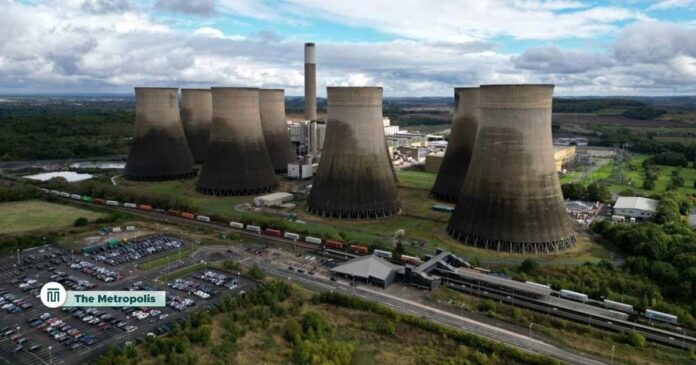On Monday, Uniper’s Ratcliffe-on-Soar plant in the Midlands of England will close, making Britain the first nation in the G7 to cease producing coal-fired electricity.
Over 140 years of coal power will come to an end in Britain.
In an effort to meet its climate targets, Britain declared in 2015 that it would shut down its coal-fired power plants within the next ten years. Almost 30% of the nation’s electricity at the time came from coal; however, as of last year, this percentage had dropped to little over 1%.
“The UK has demonstrated that coal power can be phased out at a pace never seen before,” stated Julia Skorupska, head of the secretariat of the Powering Past Coal Alliance, a coalition of about 60 national governments working to phase out coal use.
Britain’s greenhouse gas emissions have more than halved since 1990, in part due to the decline in coal power.
In addition to planning to decarbonize the electricity sector by 2030—a goal that will necessitate a sharp increase in renewable energy sources like solar and wind—Britain has set itself the goal of reaching net zero emissions by 2050.
In an email statement, Energy Minister Michael Shanks stated, “The era of coal may be ending, but a new age of good energy jobs for our country is just beginning.”
Scientists have stated that reducing the use of fossil fuels is necessary to meet the targets set forth in the Paris Climate Agreement. Energy-related emissions account for approximately 75% of all greenhouse gas emissions.
The major industrialized countries of the G7 met in April and decided to phase out coal power in the first half of the next decade. However, they also allowed economies that rely heavily on coal some leeway, which infuriated environmental groups.
Research Analyst at Global Energy Monitor Christine Shearer stated, “There is a lot of work to be done to ensure that both the 2035 target is met and brought forward to 2030, particularly in Japan, the US, and Germany.”
In Germany and Japan, coal still accounts for over 25% and 30%, respectively, of the electricity generated.



